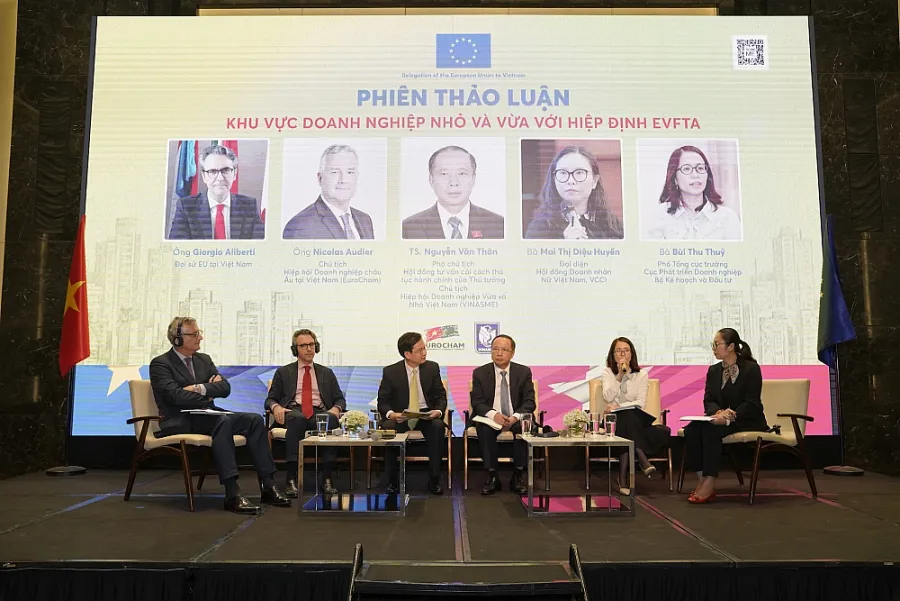EVFTA opens up opportunities for SMEs to grow
SMEs are having huge opportunities for development with the presence of free trade agreements, the Industry 4.0 and new business models.
The EU – Vietnam Free Trade Agreement (EVFTA) would lay the ground for small and medium enterprises (SMEs) to grow, as such, they should take this opportunity with both hands.
| Overview of the conference. Photo: congthuong.vn |
Ambassador and Head of the EU delegation to Vietnam Pier Giorgio Aliberti gave the remarks at a conference discussing the benefits of the trade deal for SMEs on March 26.
Aliberti, however, urged the Vietnamese government to provide better mechanism and solutions to aid the development of SMEs, while expressing his belief that the EU has made the right decision in investing in developing countries such as Vietnam.
The EU’s Ambassador expected the deal to continue improving Vietnam’s business environment, in turn making it easier for both Vietnamese and European companies operating in the country.
Meanwhile, Vice Minister of Planning and Investment Tran Duy Dong said poor competitiveness is restricting local enterprises from joining the regional and global value chains.
According to Dong, given the fact that the majority of Vietnamese firms is of small size, they are hesitating in allocating funds for R&D as well as expanding international cooperation.
“Local enterprises should draft a long-term vision and improve linkages with other partners to further enhance their competitiveness,” Dong said, noting one of the government’s priorities is to promote stronger linkage between the private and foreign invested sectors.
Head of the Department of Business Environment and Competitiveness Research under the Central Institute for Economic Management (CIEM) Nguyen Minh Thao said SMEs currently account for 98% of total operational enterprises in Vietnam and 40% of the GDP.
“Given its prominent role in the economy, SMEs are having huge opportunities for development with the presence of free trade agreements, the Industry 4.0 and new business models,” Thao said.
“However, small scale of operation could hinder enterprises from improving their productivity and business efficiency,” she added.
The EVFTA is the second trade agreement the EU has concluded with an ASEAN member state, following the recent agreement with Singapore. It represents an important milestone in the EU's engagement with Asia, along with existing agreements with Japan and South Korea.
A pre-Covid-19 study from Vietnam’s Ministry of Planning and Investment showed that the EVFTA and EVIPA would help Vietnam’s GDP grow an additional 4.6% and boost the country’s exports to the EU by 42.7% by 2025.
Meanwhile, the European Commission estimated the bloc’s GDP would be added US$29.5 billion by 2035, along with additional growth of 29% in exports to Vietnam.












